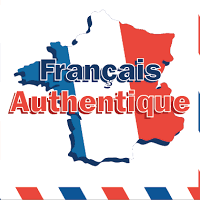Pourquoi le coq est un emblème de la France
Salut chers amis, merci de me rejoindre pour cette nouvelle vidéo de Français Authentique. Aujourd'hui, on va parler du coq ou d'une des emblèmes française. Un petit avertissement avant tout : quand on parle d'origine de mot ou d'origine de symbole ou d'origine d'emblème, on n'est pas sûr en fait ; on n'est sûr de rien. Donc, si, en regardant cette vidéo, tu as l'impression d'avoir entendu une autre histoire, eh bien, voilà, peut-être que l'histoire que tu as entendue est la bonne. Chaque fois que je fais des vidéos comme ça un peu historiques, on me dit : « Mais non, c'est n'importe quoi ! Il y a d'autres explications. » Donc, je donne cet avertissement, mais moi, ça me paraît tout à fait cohérent.
Le sujet de la discussion d'aujourd'hui, on l'a eu dans le cadre de l'académie Français Authentique puisque j'ai fait un module sur la Gaule, zone géographique ancêtre de la France actuelle et dans le cadre de ce module sur la Gaule, nous avons eu une discussion où j'ai donné une information liée à une emblème française. Une emblème, c'est un symbole, tout simplement. Par exemple, dans la constitution de la 5ème république, le livre référence du système politique français actuel, il y a des emblèmes officiels. Le drapeau bleu/blanc/rouge, la Marseillaise comme hymne et la petite phrase symbolique : Liberté, Egalité, Fraternité, ce sont des emblèmes officiels, reconnus dans la constitution, mais il existe aussi des emblèmes non officiels, c'est-à-dire qu'ils sont reconnus mais qu'ils ne sont pas inscrits vraiment dans les textes. Par exemple, tu as certainement déjà entendu parler de Marianne, Marianne qui est une figure symbolique (c'est un buste, le haut d'une femme avec un chapeau de l'époque de la révolution). Marianne, c'est une emblème de le France, ça représente la république française.
Un autre emblème assez répandu, c'est le coq ; c'est le titre de cette vidéo d'ailleurs. Le coq, c'est un animal (inutile de t'expliquer dans les détails à quoi ça ressemble ; tu as déjà vu ou entendu un coq). Le coq, on l'associe à la France depuis très longtemps. La Gaule, c'est la partie, l'ancêtre (comme je le disais tout à l'heure) de la France, ça a été en place de l'année (environ) -900 avant Jésus-Christ jusqu'à 476 (la fin de l'empire romain). On appelait la région où la France est actuellement (une partie) la Gaule. Et à l'époque, ceux qui habitaient en Gaule (au tout début en tout cas), c'était des Celtes. Le peuple celte qui vivait en Gaule, il avait pour jeu de faire des combats de coqs. Ils mettaient des coqs et ils regardaient les coqs se battre entre eux. Et coq, en latin, ça se dit “gallus” et c'est ce mot “gallus” qui aurait donné l'origine au nom “Gaule”. Gallus veut dire “coq” en latin, les Celtes faisaient des combats de coqs, donc le mot “gallus” a été utilisé pour donner naissance à la Gaule et donc plus tard à la France. Bien sûr, encore une fois, c'est là la partie où je ramène à l'avertissement du début. Il y a peut-être d'autres explications, en tout cas certains historiens pensent qu'on a appelé la Gaule la Gaule grâce aux combats de coqs qui étaient faits à cette époque.
C'est donc suite à ça que le coq est devenu l'emblème non officiel de la France (puisque ce n'est pas dans la constitution), mais on le retrouve par exemple aujourd'hui sur le maillot de rugby de l'équipe de France, par exemple. J'ai d'ailleurs le maillot de l'équipe de France de rugby et tu vois, il y a notre ami le coq sur ce fameux maillot, l'emblème FFR (Fédération Française de Rugby) avec le coq.
On l'a retrouvé au cours de l'histoire française sur des pièces de monnaies, dans des livres, début de certains livres, sur des drapeaux. Donc, ça a été pendant très longtemps un symbole très répandu en France. Et encore aujourd'hui, on a un petit mot d'expression que tu as peut-être déjà entendu qu'on utilise pour revendiquer notre fierté nationale et ce mot, c'est “cocorico”. Ça représente le cri du coq. En français, on dit que le coq dit “cocorico”. Pas tout à fait sûr que c'est ce qu'il dit, en tout cas on dit “cocorico” lorsqu'on veut montrer la fierté nationale. Par exemple, au journal de 20:00, tu peux entendre : « Et aujourd'hui, cocorico, l'équipe de France de football a gagné la coupe du monde. » Si le présentateur télé dit ça, cocorico, ça veut dire “la France a réussi quelque chose”. Dans le même journal de 20:00, tu peux entendre : « Cocorico ! Les chiffres du tourisme en France sont excellents. La France est une destination prisée par les touristes, les touristes aiment venir en France. » “Cocorico”, c'est pour montrer la fierté nationale. Ça vient du coq et de nos ancêtres celtes.
J'espère que tu as appris des choses dans cette vidéo, que tu as apprécié cette vidéo. Si oui, mets un petit pouce bleu, ça fait toujours plaisir. Abonne-toi à la chaîne en activant les notifications, c'est important ; comme ça tu sauras quand il y a du nouveau contenu (il y a une vidéo chaque lundi) et tu peux laisser un petit commentaire en suggérant peut-être d'autres sujets de vidéo. On a une longue liste, mais on lit tous tes messages.
Merci d'avoir regardé cette vidéo et à bientôt ! Salut !

